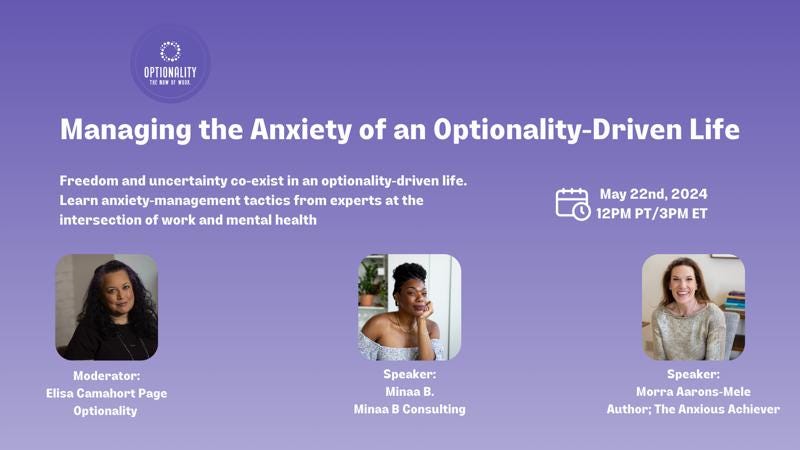Fifteen years ago I went to see a Career Coach wanting ... I wasn’t sure.
I had seen her once before, very early in my career, 10 years before, in the midst of the Dot Com bust. I needed to pivot, and she got me thinking about going to business school and re-committing to work I had done prior as a writer and editor. Maybe, I had concluded at the time, I could somehow combine my growing business strategy skills with my natural inclinations as a storyteller? The combination both intrigued me and confused me.
This next time I met with her I was in a very different place. I had managed to manifest the vision she helped me create as an entrepreneur and co-founder of a media startup. My career was running on all cylinders and thriving. We’d just secured our Series C round of funding. The Recession had certainly impacted the market, and yet our numbers were still trending upwards. I was married but not sure about children: The Startup was my baby; and she took all of my time and energy.
My coach took in all of these inputs, asked me more questions and thoughtfully jotted down notes. It was clear, she said, I had managed to manifest everything I set in motion ten years prior. Her most clarifying question, hung in the air between us, “So why are you here now?"
At the time I was convinced I had a productivity issue. I had so much I needed to accomplish, and only so many hours in a day. I traveled perhaps 60 percent of the time. I had no external hobbies, let alone time for them. I imagined I would have kids, sometime in the murky future, when the business was in a “better place,” though I hadn’t yet clarified what that meant. My goals were trained almost entirely on revenue, for the company and for myself, and I was approaching them. And yet, I had a nagging feeling that I could be doing more.
I could see my coach was drawing something — a Venn diagram. She mapped out teeny slices for friends and family, leisure time, and exercise and pointed to the admittedly outsized slice for work.
“The problem is, you are operating past your capacity in order to fit it all in,” she said. “What if you dialed work back 10 percent?” Judging by my expression of confusion, maybe horror, she leaned back and handed me her notes. “Just think about it,” she said. “You might even find that no one would even notice.”
Of course, looking back on this episode I realize that I had drunk the KoolAid offered up by the startup luminaries of the time who indicated that entrepreneurism was an Olympian endeavor that required much personal sacrifice and unquestioned dedication to succeed. Of course, you still might not succeed even after making such sacrifices, but you certainly would not if you hadn’t. And yet I wondered if, maybe, self-sacrifice at the risk of well-being was not the only way.
I had gone to my coach not to figure out how to be more productive, but for permission to do less.
Surely, if someone whose opinion I had respected as I did hers told me, 'this is not the only way’ I would have listened, was my subconscious rationale at the time. And it worked, but not for many years to come.
In the years that followed I would experience a range of cultures, from early-stage startup to enterprise behemoth, that adhered to their own versions of performative busy-ness. Some were more ruthless about it, with mechanisms to track one’s response times to emails. And some were more passive aggressive about showing up, with remote first, meeting-optional cultures that included everyone in the company on all calls, even the ones based abroad that started at 9pm. And the ones whose meetings had no real beginning or ending, or always bled into dinner or pick-up time. I had to get better at understanding my limits and acknowledging that I was not a marathon runner, whose success hinged on outlasting all others with my dedication.
So forgive my eyerolling when I ask how you are doing and you tell me, “Never better!” even though you were so busy you forgot to eat lunch and haven’t stood up, even to pee, in ten hours, or have to travel for work the next five weeks (and weekends) in a row. I know you could do 10 percent less and still survive. You could feel hydrated, rested, and not like another shoe is always about to drop. Maybe you can even be happier.
But all in good time.







